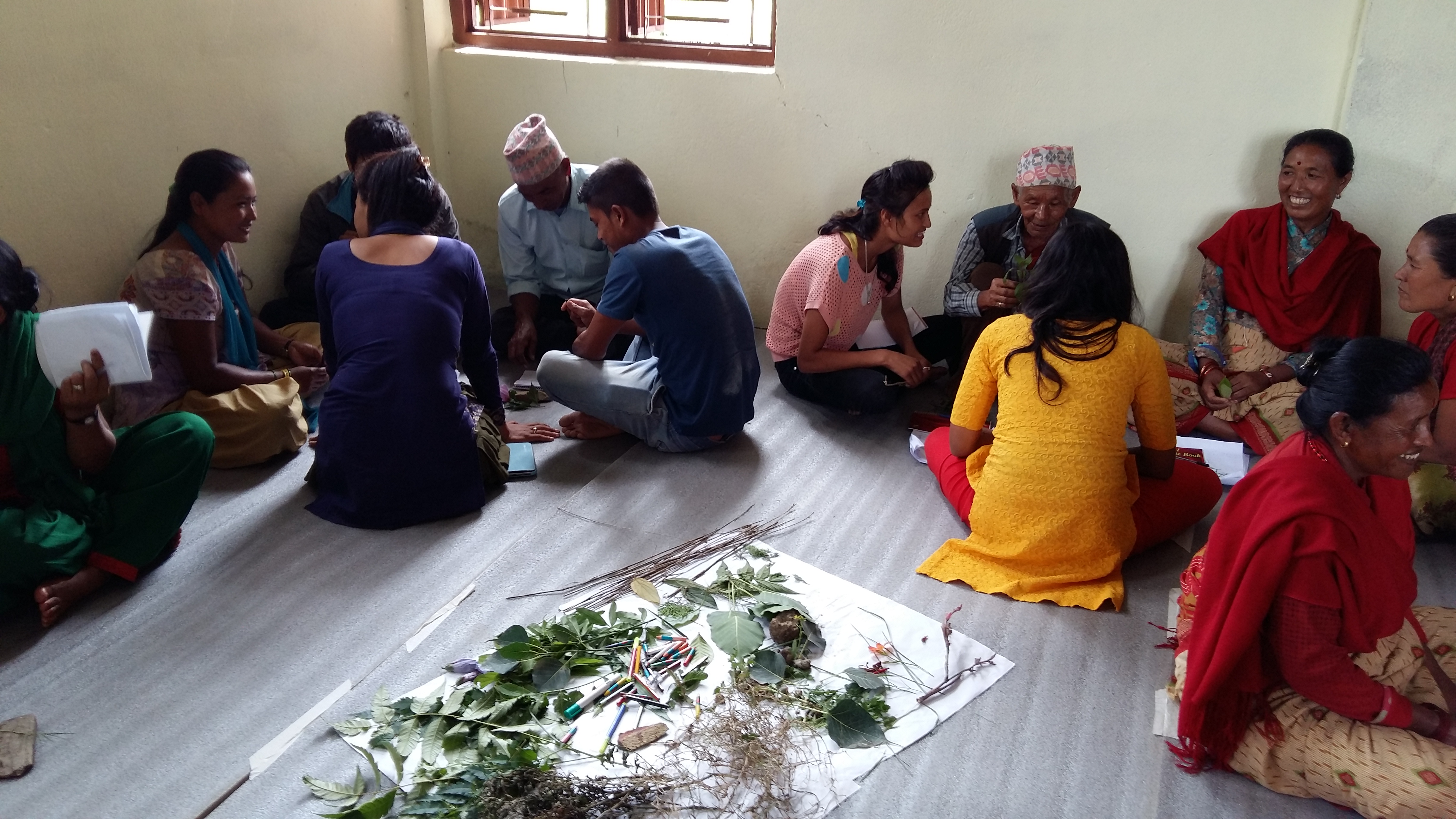Good Practice in Research Participation Series

This case study series documents the experience of R2HC-funded research teams in engaging with people affected by crisis. The full case series can be found here.
STUDY BACKGROUND
Enhancing community resilience in the acute aftermath of disaster: evaluation of a disaster mental health intervention (Haiti and Nepal)
This project was led by the University of Colorado with partners Soulaje Lespri Moun (Haiti) and Transcultural Psychosocial Organization-Nepal (Nepal). This rapid response research study sought to evaluate a community-based mental health intervention (a three-day disaster resource building training) intended to mitigate the impact of acute environmental disasters among communities prone to disaster in both Haiti and Nepal. A longitudinal randomised controlled trial methodology was used following seasonal flooding in Haiti and Nepal. While the study was underway in Nepal, a 7.8 magnitude earthquake struck, with devastating impact across the country. The study team were able to incorporate additional R2HC funding to explore adaptation of the intervention using a matched cluster comparison methodology among people affected by the earthquake in Kathmandu Valley.
APPROACHES TO ENGAGING WITH PEOPLE AFFECTED BY CRISES
Cultural adaptation, community engagement and partnership formation were integral to this research throughout the design, implementation and post-research phases.
DESIGN PHASE
Participatory needs assessment
The study team had established relationships with partners in each country, while the two co-PIs had worked for many years in both countries, which enabled an informal, fluid and participatory needs assessment process. Researchers had benefited from seed funding for pilot initiatives in both locations, which also aided relationship-building.

“Stakeholders can talk about constraints and hopes, and then prioritise the needs. We came to the community with some constraints, but within that it was a bottom-up approach. We did not start with what are the top three priorities” - Courtney Welton-Mitchell, PI
Collaborative and iterative design process
The development of the three-day training intervention was an intentionally lengthy, collaborative process involving in-country colleagues and community members, whose iterative input into the curriculum allowed for the development and inclusion of examples that were culturally appropriate, such as stories and dance. As the interventions developed, participatory workshopping was used, along with roleplaying of the intervention, with further changes incorporated.
Inclusion beyond tokenism
In-country researchers were specifically recruited with particular cultural viewpoints to ensure meaningful and non-tokenistic engagement.
“We workshopped from the ground up but also explicitly recruited members with particular cultural backgrounds and viewpoints, encouraging them to have substantial input” - Leah James, PI
IMPLEMENTATION PHASE
Implementation by local teams
The intervention was implemented by local teams. This maximised the possibility that the content resonated for the community and increased the likelihood that associated messages would be well received. Training and supervision were provided for lay mental health workers and early career clinicians, all of whom directly facilitated the three-day intervention.
Co-creation as ethical and effective
The process of co-creation, adaptation and facilitation by local staff helped to ensure that the intervention did not challenge or undermine existing belief systems or practices. This is a key consideration for ethical practice, but also important in relation to uptake.
POST-RESEARCH PHASE
Workshops for dissemination
Community workshops were held to disseminate the research findings in Nepal and Haiti. Local team members also presented at a regional mental health conference in Haiti and at conferences in the US. Adequate funding for uptake and dissemination is essential to ensure sufficient time and resources are dedicated to this process.
ENABLERS OF PARTICIPATION
Funding should not create inadvertent barriers to enable participation. The study team noted that seed funding, provided through the R2HC programme, enables relationships to be built within multi-national teams. Such relationships should be genuine partnerships, involving complementary skills and co-creation of knowledge. Seed funding, and budgets that allow for the incorporation of activities through design to dissemination and uptake, allow for the development of closer connections, and provide opportunities for continuous community engagement. Close existing research connections with countries and communities that are to be engaged during a research project allow for more fluid, collaborative, and community-driven processes.
FIND OUT MORE
To find out more about this research, please see the study profile.
ACKNOWLEDGEMENTS
With thanks to Dr Courtney Welton-Mitchell and Dr Leah James for their contributions to this case study, and the study team, partners, and study participants for their contributions to this research.